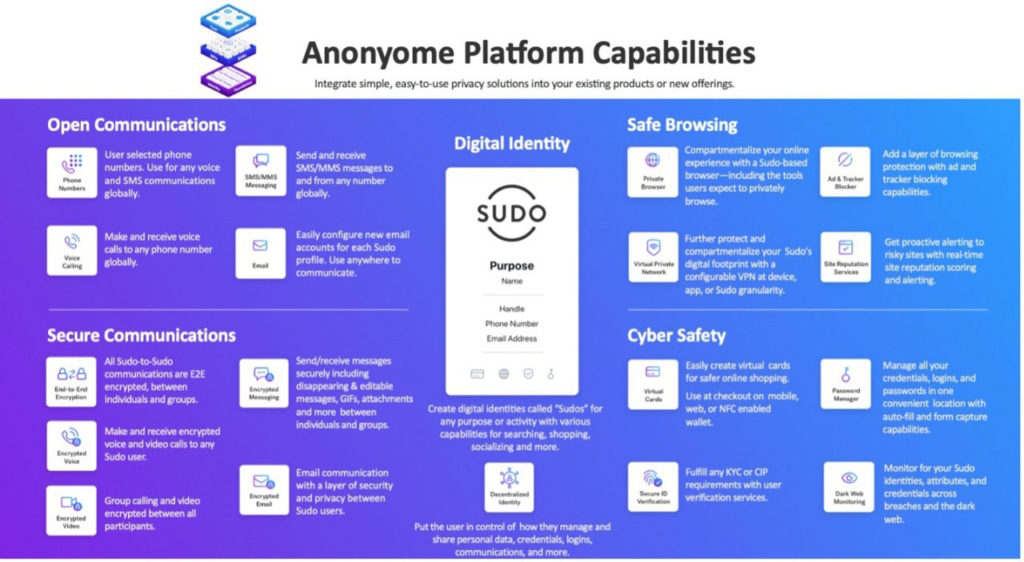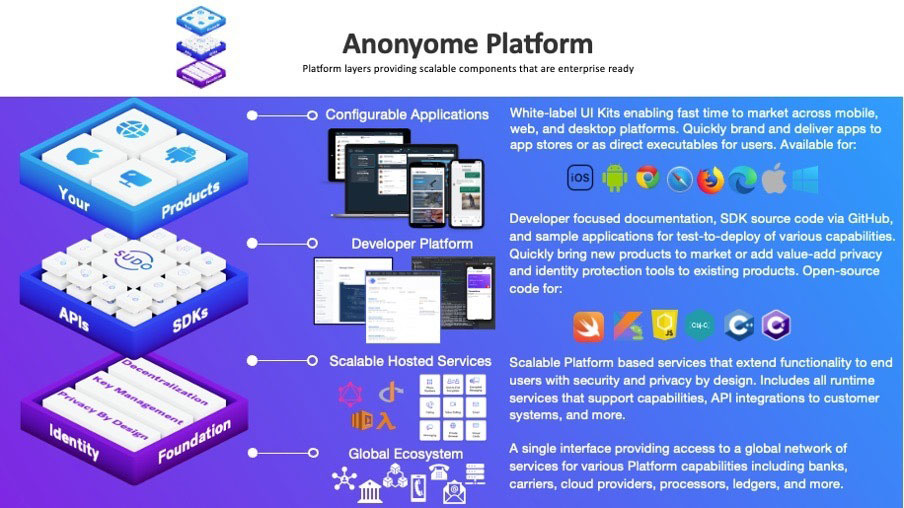In today’s data-driven world, enterprises are seeking:
- Ways to meet the demands of their users for safer and more private interactions with their services and the digital world around them.
- New methods for simplifying their government regulation compliance efforts for their handling of personally identifiable information.
As we’ve been discussing in this article series in recent weeks, the Sudo Platform lets enterprise developers integrate digital identities into their applications and build a deeper level of trust with their users by providing them with various digital identity-based capabilities. The platform offers extensive privacy capabilities, from communications to secure browsing to payments, all centered around digital identities. Indeed, the Sudo Platform delivers enterprises the solution they’re looking for through a range of identity, privacy, and cyber safety offerings.

The diagram above shows the Sudo Platform. At the foundation is a set of scalable hosted services that provide the capabilities to an enterprise developer. An enterprise can integrate these hosted services with its own systems to provide entitlement, federated single sign-on, and other integrations. The hosted services are also integrated into various third-party systems such as cloud providers, telephony carriers, banks, payment processors, blockchains and more. The hosted services are deployed individually for each of Anonyome’s enterprise customers, completely separating them from other enterprise customers’ data and services, and providing the ability to customize that environment for the enterprise.
Above the hosted services are a set of SDKs, documentation and sample apps distributed through GitHub that allow enterprises to quickly develop applications using the Sudo Platform services. All SDKs and sample app source code are open source so enterprise developers can quickly become productive using the Sudo Platform services.Some enterprises require a faster route to market or may lack the internal expertise to create and deploy applications to end users. For those companies, we also publish UI kits that enable easy setup, configuration, and consumption of platform SDKs into unbranded applications that can be quickly branded and delivered to market on mobile, web, and desktop platforms. This allows us to provide a rapid white-label offering that is very attractive to enterprises who want the fastest time to market.

The diagram above shows the current capabilities of the Sudo Platform. The digital identity underpins these capabilities, and they can be grouped like this:
- Open Communication – Allows a user to interact with any third-party service or user they don’t know. Users can provision phone numbers and email addresses and use SMS/MMS, voice calling and email for communication.
- Secure Communication – Delivers end-to-end encrypted messaging, voice calling, video and email. Used when both users in the communication have the same app.
- Safe Browsing – A compartmentalized browser experience with ad/tracker blocker and site reputation. Supplemented with VPN capabilities.
- Cyber Safety – Safe payments, password management, secure id verification and dark web monitoring.
Next week, in part 3, we’ll explore how we’re enhancing Sudo digital identities with decentralized identity.
Photo by: PopTika



